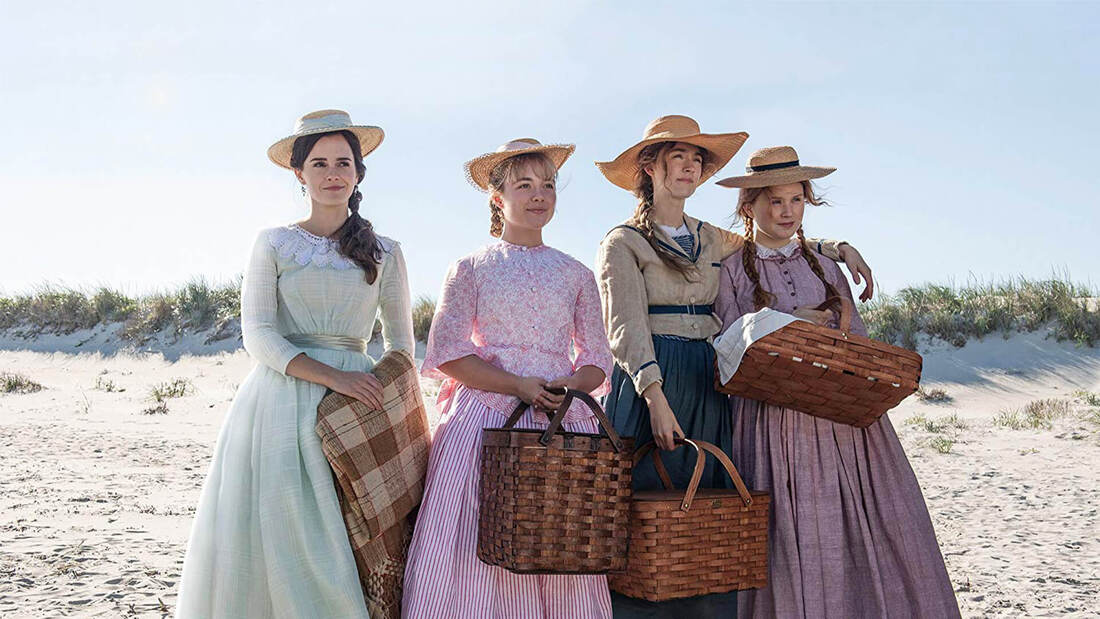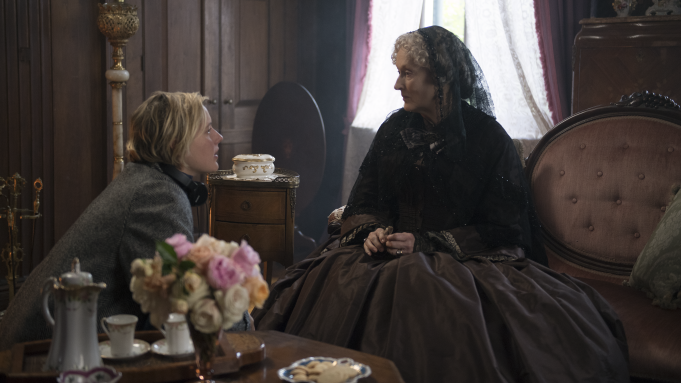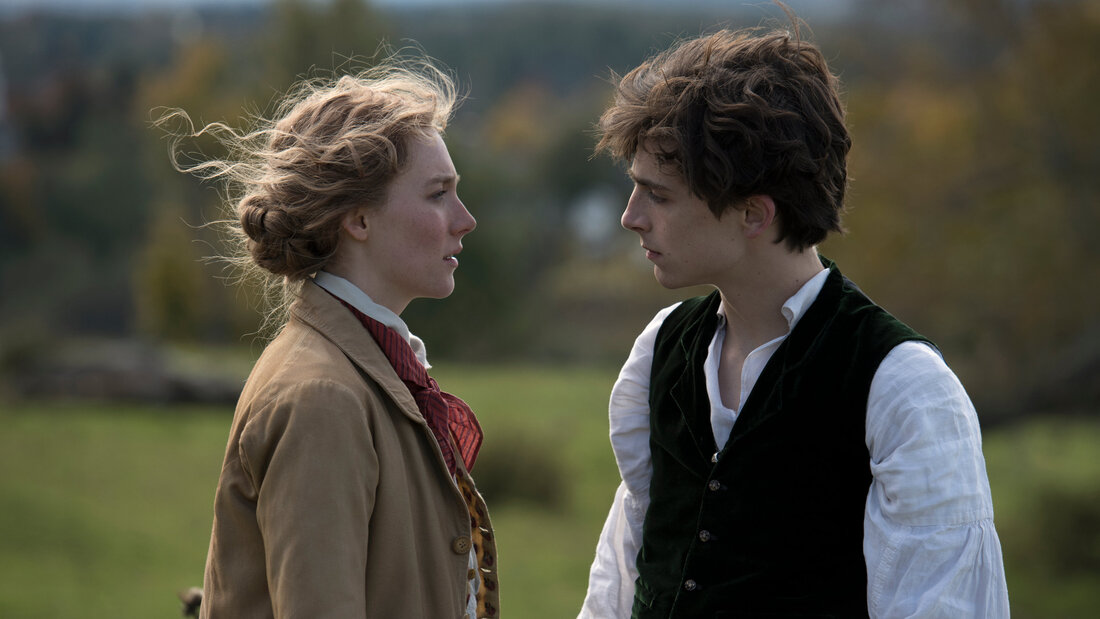Gerwig achieves a unique take on the source material by manipulating the plot structure. The novel takes place in a linear chronology, but this adaptation jumps back and forth through time. Two distinct periods are portrayed, events that take place before Jo March (played by Saoirse Ronan) moves to New York, and events that take place after she decides to move back home. This time-skipping technique allows for a more dynamic and interesting narrative structure, as similar events can be told at the same time. For example, Beth March (played by Eliza Scanlen) gets an illness twice, once in each time period. We are able to watch both of those instances of her illness unfold at the same time on screen despite being seperated in the story for an extended period of time. The time jump can be a little bit jarring for those who are familiar with the novel or other adaptations, but simple lighting tricks and costume details serve as cues for which time period is being shown. A warmer lighting permeates the “past” storyline and a bluer lighting effect shows us the more “present” events.
What makes the film constantly entertaining is a constant energy between the characters. There is never a dull moment in the March household, as the sisters are always joking, teasing, talking over each other, and laughing together. While one or two characters will be talking about something important, around them the rest of the family is also talking and often interrupting or talking over the others. This makes the scenes come alive and feel like a real house full of people. It also allows for many humorous lines or reactions to add a bit of fun to what could easily become a dialogue heavy and uninteresting scene. Since a lot of the film takes place in the house and between groups of people talking, the humor and energy is necessary to keep the film light and fun. Despite this, the film is not afraid to become quiet and contemplative, or even deeply sad when it needs to be.
The film earned several Oscar nominations, including for Best Picture and for Best Adapted Screenplay. Oscars wins are certainly not a metric one should use to judge whether or not a film is good, however, I feel that both of these nominations are accurate and well deserved. I have not been so emotionally connected with the characters and story of a film in a long time. The way Gerwig directs the film, and the way the actors deliver their performances makes you feel like you are truly there with the March family. I cannot recommend the film enough. I am sure that this film will mean a lot to many people, perhaps more so to women, yet I still find myself reflecting on the film weeks after seeing it. I believe everyone can watch this film and come away with something.




 RSS Feed
RSS Feed
